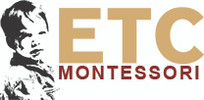Product Overview
Picture a child laying out bright geometric pieces, checking a card, and then—like magic—seeing the full design appear when the mirror reflects a single quadrant. Figurogram turns shape composition, symmetry, and spatial reasoning into a captivating, hands-on challenge for early learners.
What it is
A self-contained geometry activity with durable components designed for repeated classroom use:
-
48 plastic shapes
-
18 plastic assignment cards that progress in difficulty
-
Plastic safety mirror for symmetry and reflection work
-
Wooden storage box (approx. 35 × 19 × 8 cm) for easy shelf-readiness
Children recreate the images shown on the assignment cards. For an added challenge, they build one quarter of the design and use the mirror to complete the picture through reflection—an intuitive way to experience line symmetry.
Why it’s useful (home or classroom)
-
Spatial reasoning & symmetry. Learners compose and decompose shapes, notice lines of symmetry, and predict how reflections transform a figure.
-
Visual discrimination & patterning. Matching shapes to targets strengthens attention to size, orientation, and rotation.
-
Confidence through sequencing. Graduated card difficulty scaffolds success from simple builds to complex, mirrored designs.
-
Built to last. Plastic pieces and safety mirror in a wooden box make it genuinely classroom-ready.
Recommended age: Early Childhood (3+) and up; pairs well with sensorial and early geometry shelves.
Direct Aim
-
Develop spatial orientation and visual tracking by copying and completing geometric patterns.
-
Experience symmetry and reflection using the mirror to complete quarter-designs.
-
Strengthen shape composition/decomposition (building complex figures from simple parts).
Indirect Aim
-
Build concentration, perseverance, and self-correction through stepwise challenges.
-
Enrich mathematical vocabulary (vertex, edge, symmetry, reflect, rotate) during natural conversation.
-
Prepare for later geometry standards involving attributes of shapes, symmetry, and transformations.
How to present (quick guide)
-
Model choosing a card and placing a blank workspace beside it.
-
Select shapes and copy the figure, naming shapes casually as you work.
-
Introduce the mirror challenge: build one quadrant, then reveal the completed image in the mirror; invite the child to try.
-
Rotate through cards from simple → complex as confidence grows.
Extensions & tips
-
Ask: “How would this look if we flip one piece?” or “Where is the line of symmetry?”
-
Time-limited builds for older children; cooperative builds where one child selects shapes while another places.
-
Store pieces by type in small trays inside the box to support independent set-up and clean-up.
Contents:
- 48 plastic shapes
- 18 plastic assignment cards
- plastic safety mirror
- wooden box (14 x 7.5 x 3 in)








